TERROR RISING
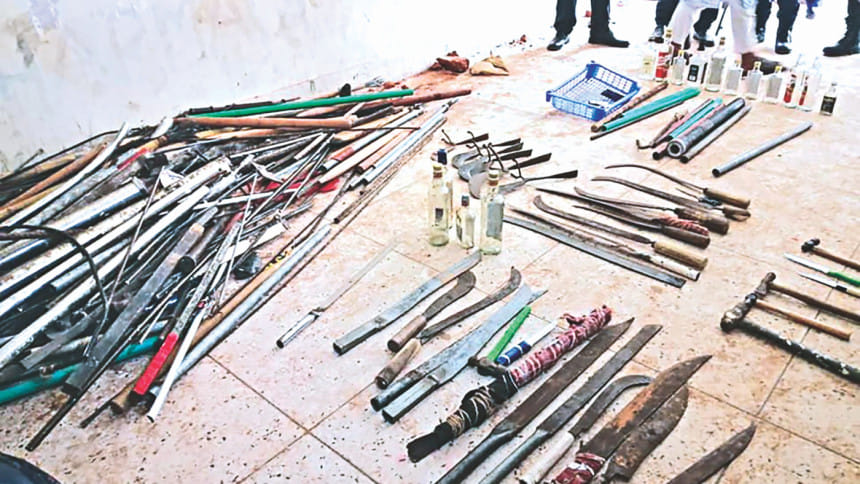
The Bangladesh Awami League (AL) has been in power for almost 11 years. During this time, its student wing, Bangladesh Chhatra League (BCL), routinely hit headlines for all kinds of disgraceful activities—extortion, violence on campuses, murder of students and political rivals, sexual harassment, suppression of popular student movements with brute force, running gangs of drug dealers and hijackers, to name just a few. However, very little, if anything, has been done to rein in this unruly organisation.
The latest, but probably not the last, victim of this culture of impunity is Abrar Fahad, a second-year student of the electrical and electronic engineering department of Bangladesh University of Science and Technology (BUET). Due to this culture of impunity and normalisation of violence, when Abrar was being beaten to death by BCL cadres, nobody dared to come forward to save him; after recovering his dead body, the university administration, at first, tried to hide the CCTV footage. Protesting students all over the country are expressing suspicion over fairness of the trial of the assailants.
Is Abrar the only victim of BCL's criminal politics? The answer is no.
According to reports in the national media, just between 2009 and 2014, 33 students were killed in different educational institutions at the hands of BCL cadres—15 of them were their own activists. At least 1,500 students got seriously injured in 432 clashes perpetrated by BCL in the first five years of AL's rule. Between 2014 and 2018, 129 students have been killed by BCL cadres. In 2018 alone, BCL activists killed 31 people—students and civilians. What are the reasons behind their violent activities? A share of the extorted money, establishment of dominance on campus, ego clashes and political rivalry are some of the main reasons which cause severe infighting among BCL cadres.
Vicious infighting among BCL activists became apparent as early as 2009 when some cadres of the organisation's Dhaka Medical College (DMC) branch killed Abul Kalam Asad alias Rajib, a student of DMC and general secretary of a faction of the branch. Rajib was beaten to death and his body was thrown off a multi-storeyed building of the college. 17 BCL cadres were identified as assailants and the only punishment they received was that nine of them were suspended for two professional exams and eight of them were suspended for one professional exam.
In 2010, BCL activist Nasrullah Nasim, a student of Rajshahi University (RU), was flogged, stabbed, and pushed off the second floor of a residential hall of the university. Nasim's crime was that he got involved in a scuffle over a "food token" during the organisation's iftar party. None of the activists and leaders of the RU branch of BCL were indicted after Nasim's unfortunate death. In the same year, Abu Bakar Siddique, a meritorious student of Dhaka University (DU), was killed when two BCL groups fired firearms at each other. A randomly fired bullet hit Abu Bakar who was studying in his dormitory room. He was killed on the spot. 10 activists of BCL were indicted for the murder, but all of them were acquitted on all counts. Abu Bakar's family members did not even know about the verdict and the DU authorities did not take any further steps to ensure justice for its student.
In 2012, Zubair, a fourth-year student of the English department of Jahangirnagar University (JU), was tortured, stabbed, and killed by BCL cadres due to political rivalry. After over a year's trial, a speedy tribunal sentenced five assailants to death and awarded life term imprisonment to six other assailants, all members of the JU branch of BCL. However, all these convicted criminals are roaming freely in and outside Bangladesh. At least three of them are currently living in Malaysia and no attempt has been made to extradite them. One of them, Khan Mohammad Rois alias Shohan, posted a status on Facebook in 2017 saying, "I am free bird, now I can fly."
In the same year, BCL cadres of Jagannath University killed a tailor named Biswajit Das in broad daylight in public by hacking him repeatedly with machetes. Like Abrar's murder, the cadres claimed that Biswajit was an activist of Bangladesh Islami Chhatra Shibir (BICS), a political rival of BCL. Although Biswajit was repeatedly claiming that he was a Hindu and that he was not a member of BICS, nobody paid any heed. Initially, eight of the key assailants who hacked Biswajit in front of television cameras, were awarded capital punishment. However, six of them were relieved from the death penalty after filing an appeal to the High Court. Two of them have not been detained yet. 13 other BCL activists were sentenced to life imprisonment; however, 11 of them are still on the run.
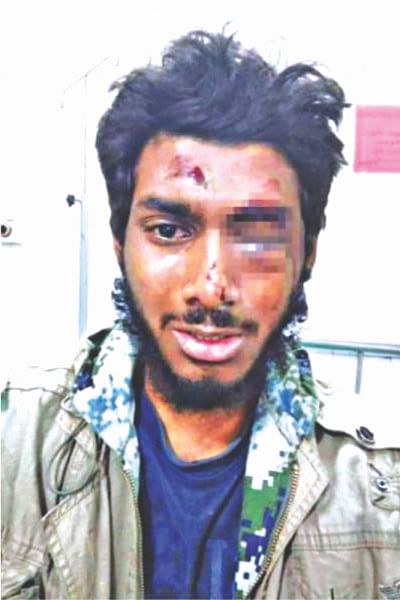
These prominent murder cases are only a few examples of the 125 lives BCL has taken, in the process of which, they have crippled thousands of youths for life whereas in most cases, the assailants are still at large or facing reduced punishment thanks to their political affiliation. To get away with their crimes, BCL maintains a reign of terror on university campuses so that no student dares to file any complaint against their torture. Through a strict hazing and verification process, BCL members determine who can stay in the dormitories and who cannot, particularly in the dormitories for male students. All students have to attend BCL and AL's programmes regularly to keep their hall seats. In 2016, a student named Hafizur was forced to attend BCL's programme all day and night to get a seat in the dormitories. He had to stay in Salimullah Muslim Hall's porch as he was not allowed to get any seat. As a result of exhaustion and the unhealthy condition of his living place, he contracted severe pneumonia and died of it on his way home. His unfortunate death sparked students protest but could not make any impact on BCL's rule at DU.
BCL only tightened its grip on common students after that incident. If any student disobeys a BCL leader or displeases him in any way, he might face Abrar's fate and if he is lucky, he will be beaten mercilessly and handed over to the police alive with a Shibir tag. To interrogate and torture these students, BCL has turned the dormitories' guest rooms and TV rooms into torture and interrogation cells. Ahsan Rafiq, a student of DU's disaster science and management department and staying at Salimullah Muslim Hall, lent his calculator to a BCL leader of that hall. When Ahsan asked for the calculator back as the leader had not returned it for more than one month, it infuriated him. Like Abrar, Ahsan was summoned by the hall president of BCL, Tahsan Ahmed Rassel, to the TV room of the hall and beaten almost to death. He was evicted from the hall and BCL announced that Ahsan was a member of BICS. He suffered a brain haemorrhage and the cornea of his left eye was badly damaged. He still cannot see with his left eye. He had to leave DU due to threats from BCL. He could not continue his higher education as he is still suffering from post-traumatic stress disorder and has to go to India every two months to treat his left eye. The BCL leaders, on the other hand, were only suspended temporarily and are now regularly attending classes.
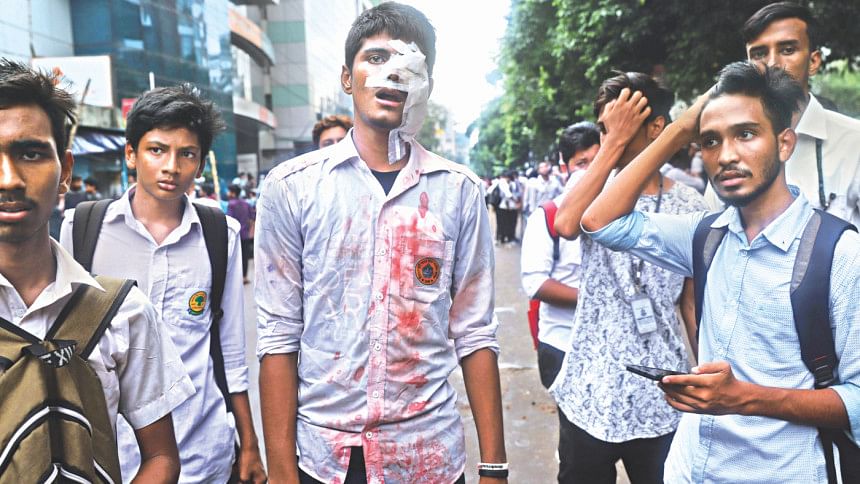
Besides torturing students, BCL has earned notoriety in suppressing all the popular student movements in recent times. BCL cadres violently attacked quota reformists and crippled many of them for life. Nurul Huq Nur, the current vice president of DUCSU and one of the leaders of the quota reform movement, was attacked at least seven times by BCL cadres. They confined students to the dormitories so that they could not participate in the protests and processions. BCL cadres also violently assaulted child protesters during the road safety movement. They flogged school-going children and teenagers with batons, rods, and hockey sticks. Many children were seriously injured and bleeding severely. In this way, BCL has agitated a large number of people, mostly the youth, against the government who perhaps initially did not have any anti-government sentiment.
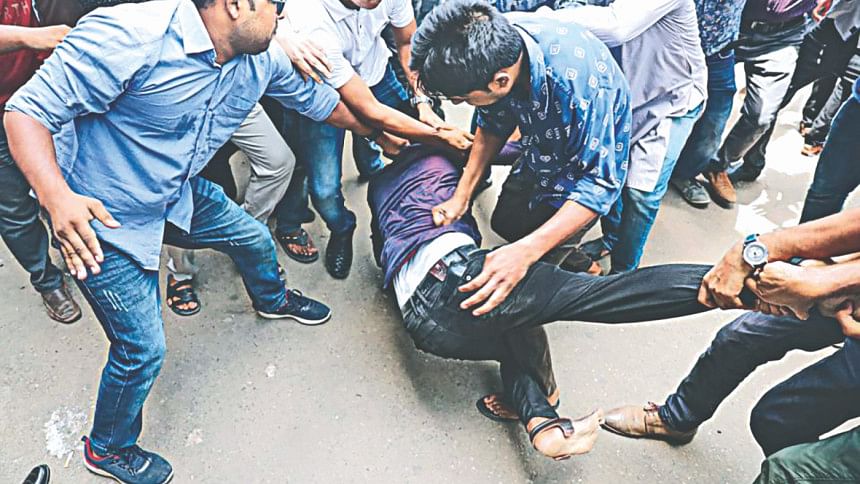
Although BCL is one of the largest student organisations of the country with the motto "Education, Peace, Progress", it is probably the most anti-student and corrupt bodies in the country at this moment. However, Obaidul Quader, general secretary of the Awami League and a former president of the central committee of BCL, said in a press conference after Abrar's murder, "There is no scope of blaming the entire organisation for some individual's crime. BCL has also done a lot of virtuous works. Whenever it finds any of its members guilty of any crime, it punishes its members and expels them from the organisation."
However, the recent history of BCL and its ongoing activities give us a picture that is contrary to what Obaidul Quader has claimed. Lately, several top-ranking leaders of AL even objected to the Prime Minister about BCL's unrestricted illicit activities. BCL's central president and general secretary were ousted from their posts by the Prime Minister herself when it was revealed that they extorted a large sum of money from the development funds of Jahangirnagar University and that they sold BCL committee posts to every Tom, Dick and Harry in exchange for money.
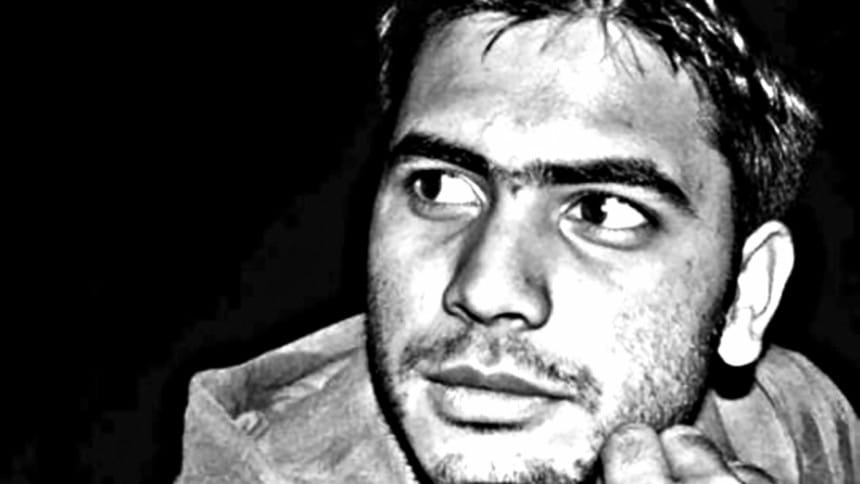
It is now high time to overhaul BCL's entire structure and mode of operations by conducting a "purification" and "reformation" campaign which Awami League has already started with its youth wing "Jubo League". Otherwise, BCL will be tarnishing Awami League's image by continuing to commit crimes unchecked which will only result in another countrywide youth agitation in the near future.
Md Shahnawaz Khan Chandan can be contacted at [email protected]

 For all latest news, follow The Daily Star's Google News channel.
For all latest news, follow The Daily Star's Google News channel. 



Comments